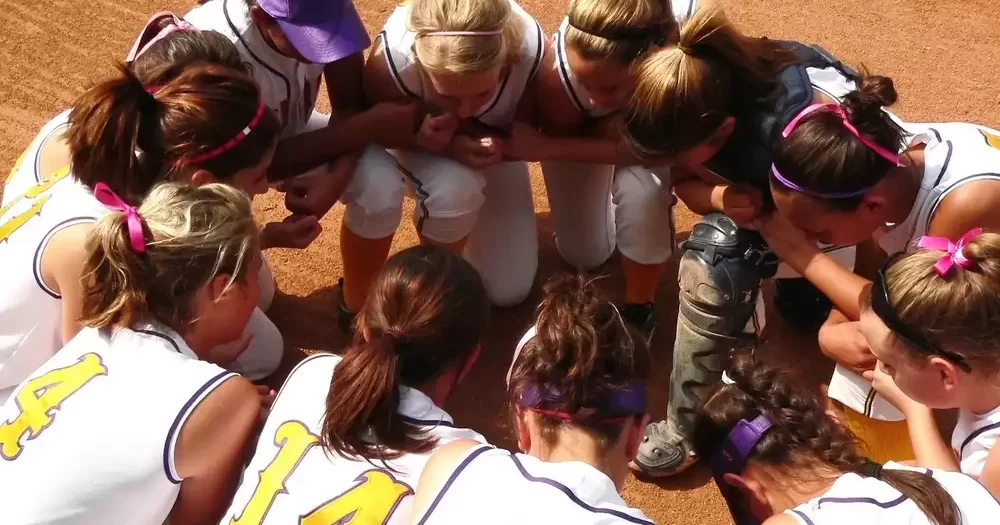In today’s fast-paced world, sports play a crucial role in building camaraderie and teamwork. Among the many options, starting a travel softball team offers a unique and exciting experience. As the popularity of this sport continues to grow, it provides a fantastic opportunity for both players and coaches.
Creating a successful travel softball team requires careful planning, dedicated resources, and the right approach. This includes recruiting talented players, securing sponsorships, and establishing a strong organizational structure. With these essential elements in place, your team will be ready to hit the field and embark on an unforgettable journey.
If you’re passionate about softball and eager to create your own team, look no further. Dive into the steps outlined in this article to build a competitive and cohesive travel softball team that thrives on and off the field.
Understanding the Basics of Travel Softball
Travel softball is a competitive sport that offers players the opportunity to develop their skills and showcase their talents in front of college scouts and coaches.
Unlike recreational leagues, travel softball focuses on high-level competition and typically involves teams traveling to various tournaments to compete against other elite teams.
Before starting a travel softball team, it is essential to understand the commitment, time, and resources required to build and maintain a successful team.
Establishing Your Vision and Goals
Creating a successful travel softball team begins with a clear vision and well-defined goals. Consider the following questions:
- What age group will your team cater to?
- What skill level do you aim to achieve?
- Will your team focus primarily on player development, competition, or both?
- How often will your team practice and compete in tournaments?
Having a clear vision and well-defined goals will provide a solid foundation for your team and help guide your decision-making process throughout the team-building journey.

Forming the Team
Finding Players
Assembling a roster of talented and dedicated players is crucial to your team’s success. To find potential players, consider the following methods:
- Advertise tryouts in local newspapers and online forums
- Reach out to local recreational leagues and schools
- Network with other coaches and parents within the softball community
- Utilize social media to promote your team and attract interest
Holding Tryouts
Hosting a well-organized tryout is essential for evaluating prospective players and selecting the best talent for your team. When planning tryouts, consider the following:
- Schedule tryouts well in advance and communicate the dates, times, and locations clearly
- Develop a structured tryout format that evaluates players in various skills, such as hitting, fielding, base running, and pitching
- Ensure you have enough coaches and evaluators to provide a fair assessment of each player
Assembling a Coaching Staff
An experienced and knowledgeable coaching staff is vital for player development and overall team success. When selecting coaches, look for individuals who:
- Have previous coaching experience or a strong background in softball
- Share your vision and goals for the team
- Possess excellent communication and leadership skills
- Are dedicated to player development and fostering a positive team environment
Additionally, consider the need for specialized coaches, such as a pitching coach or hitting instructor, to help players refine their skills in specific areas.
Registering Your Team
Before your team can begin competing in tournaments, you must register with a softball organization. The most prominent organizations in the United States are USA Softball, USSSA, and Triple Crown Sports.
Each organization has its own registration process, rules, and requirements, so be sure to research and choose the one that best aligns with your team’s goals and objectives.

Securing Sponsorships and Fundraising
Travel softball can be expensive, with costs including uniforms, equipment, tournament fees, and travel expenses. To help offset these expenses, consider seeking sponsorships from local businesses or hosting fundraisers.
When approaching potential sponsors, present a clear proposal outlining the benefits of supporting your team, such as increased brand exposure or community goodwill. Fundraising ideas include:
- Hosting a car wash or bake sale
- Organizing a raffle or silent auction
- Selling team merchandise or spirit wear
Budgeting and Financial Planning
Creating a comprehensive budget will help you manage your team’s finances effectively. Your budget should account for all anticipated expenses, including:
- Equipment and uniforms
- Tournament fees and travel expenses
- Coaching salaries or stipends
- Insurance and registration fees
- Facility rentals for practices and games
Be sure to also factor in any anticipated income from sponsorships, fundraising efforts, and player fees.
Scheduling Practices and Tournaments
Consistent practice and competitive tournament play are essential for player development and team success. When scheduling practices, consider factors such as facility availability, players’ school schedules, and potential conflicts with other sports or activities.
For tournaments, research and select events that align with your team’s skill level and goals. Be mindful of travel distances and the potential impact on your budget.
Developing a Team Culture
A strong team culture promotes unity, camaraderie, and a positive environment for players to grow and develop. To cultivate a positive team culture:
- Establish clear expectations for player behavior, commitment, and sportsmanship
- Encourage open communication between coaches, players, and parents
- Foster a sense of accountability and responsibility among team members
- Celebrate individual and team accomplishments
- Host team-building activities and events
Promoting Your Team
Effective promotion can help attract talented players, sponsors, and supporters. Consider utilizing:
- A team website or blog
- Social media platforms such as Facebook, Twitter, and Instagram
- Local newspapers, radio stations, and online forums
- Word-of-mouth promotion through players, parents, and coaches
FAQs
How much does it cost to start a travel softball team?
The cost of starting a travel softball team can vary widely depending on factors such as equipment, uniforms, coaching salaries, and travel expenses. It’s crucial to create a detailed budget and explore fundraising and sponsorship opportunities to help offset costs.
What age groups can participate in travel softball?
Travel softball teams typically cater to a range of age groups, from as young as 8 years old up to 18 years old. Teams are often divided into age-specific categories, such as 10U, 12U, 14U, 16U, and 18U, to ensure appropriate competition levels and player development opportunities.
How do I find tournaments for my travel softball team to compete in?
Tournament listings can be found through the websites of softball organizations like USA Softball, USSSA, and Triple Crown Sports. Additionally, you can network with other coaches, teams, and softball enthusiasts to learn about local and regional events.
Final Thoughts
In the end, it’s all about passion, hard work, and dedication. Establishing a travel softball team may not be an easy task, but the rewards of watching your team succeed and grow are immeasurable.
Remember, the journey of a thousand miles begins with a single step. So, don’t hesitate any longer – take the plunge and begin your adventure in the world of travel softball.
With persistence and commitment, you’ll be on your way to creating a team that shines both on and off the field.
